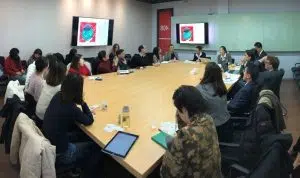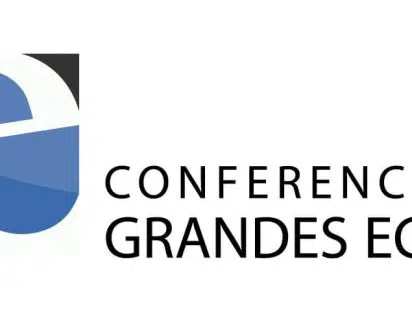Reducing the Gap between Universities and Companies.
A report by Maximilian Rech.
On Wednesday, 6 December 2017, the European Chamber of Commerce in China and ESSCA Shanghai gathered Human Resources (HR) professionals and university representatives to discuss the problem of bridging the gap between students’ capabilities and market needs.

To discuss this topic, the European Chamber brought together professionals from both members of its Human Resources Working Group and its Education Roundtable, to share their experience, challenges and best practices.
According to a recent KPMG study, China is the most attractive region for international and multinational companies to launch new products or services. Therefore, innovation is frequently the subject of China’s governmental regulations and policies. These regulations have been a considerable obstacle for companies to hire interns in China; according to the law, students that are currently enrolled in the universities cannot be hired by the company or need an agreement from the educational establishment to conduct an off-campus internship. In practice, this agreement is not easy to obtain. Internships offered by the companies are often unpaid: due to the complicated process, managers rarely bother to arrange the partial reimbursements for the interns. In spite of the fact that the solution of this problem requires a lot of investment, the Chinese government is willing to implement the initiatives suggested by companies.
As a part of sharing experience between company’s HR representatives and university professionals, Victor Tse, Senior Managing Associate at Bird & Bird, described how the concept of intellectual property (IP) is embedded in cooperation between companies and educational establishments. It includes the following components: foreign investment, formal cooperation with universities, informal ways like licensing and joint branding, Research and Development (R&D) cooperation and governmental approval requirements. Mr. Tse also pointed out key drivers for mutual cooperation for the companies that include access to the greater pool of expertise, saving on R&D costs, willingness to own IP of the creations, keep the innovations secret and control over who can use or develop the IP.

The competence of the graduate students was also mentioned by Jing Leng, Professor of Law at East China University of Political Science and Law. She emphasized that current university education lacks practical skills so necessary for professional life after graduation, as nowadays everybody has an easy access to basic theoretical knowledge online. Unfortunately, universities provide the students with the general coverage and do not involve practice in the studying curriculum.
Double-degrees may be part of the solution. According to Lingfang Song, Professor of Marketing and Management at ESSCA School of Management, they could be a way to fix the aforementioned mismatch by combining the best of educational systems in China and France. In China, the master’s degree is divided into two parts, whereby the student attends the required classes for one year and spends the second year on writing the master thesis. The programmes in France are much more intense, as students are not allowed to have a free year to complete the master thesis. ESSCA School of Management also stands out among other schools for requiring the students to accomplish a one-semester internship programme relevant to their degree to obtain the diploma.
Maximilian Rech, Programme Director & Assistant Professor in International Affairs at ESSCA School of Management, suggested that educational institutions should be able to create the connection between companies as a compulsory component of the studying curriculum giving an example of Junior Consultancy Projects at ESSCA where students work side by side with the professionals. This allows ‘junior consultants’ to test apply their knowledge and test it in the field and offers hands on training with the tools of the industry. The companies receive expertise from the generation of future executives, while the ‘junior consultants’ gain valuable experience for their career
The key takeaway from the discussion would be the great necessity for linking the university graduates and companies with moderating the transfer between theory and practice by providing more opportunities to acquire practical skills in the course of studies. Co-design of programmes such as in ESSCA’s steering committees that are composed by 50 percent academic representatives and 50 percent company representatives can be a very relevant contribution. The participants of the round table agreed to support each other in this endeavour with the aim of providing future generations of young graduates with the ability to better bridge the gap between universities and companies upon entering their professional career.
[cite]




